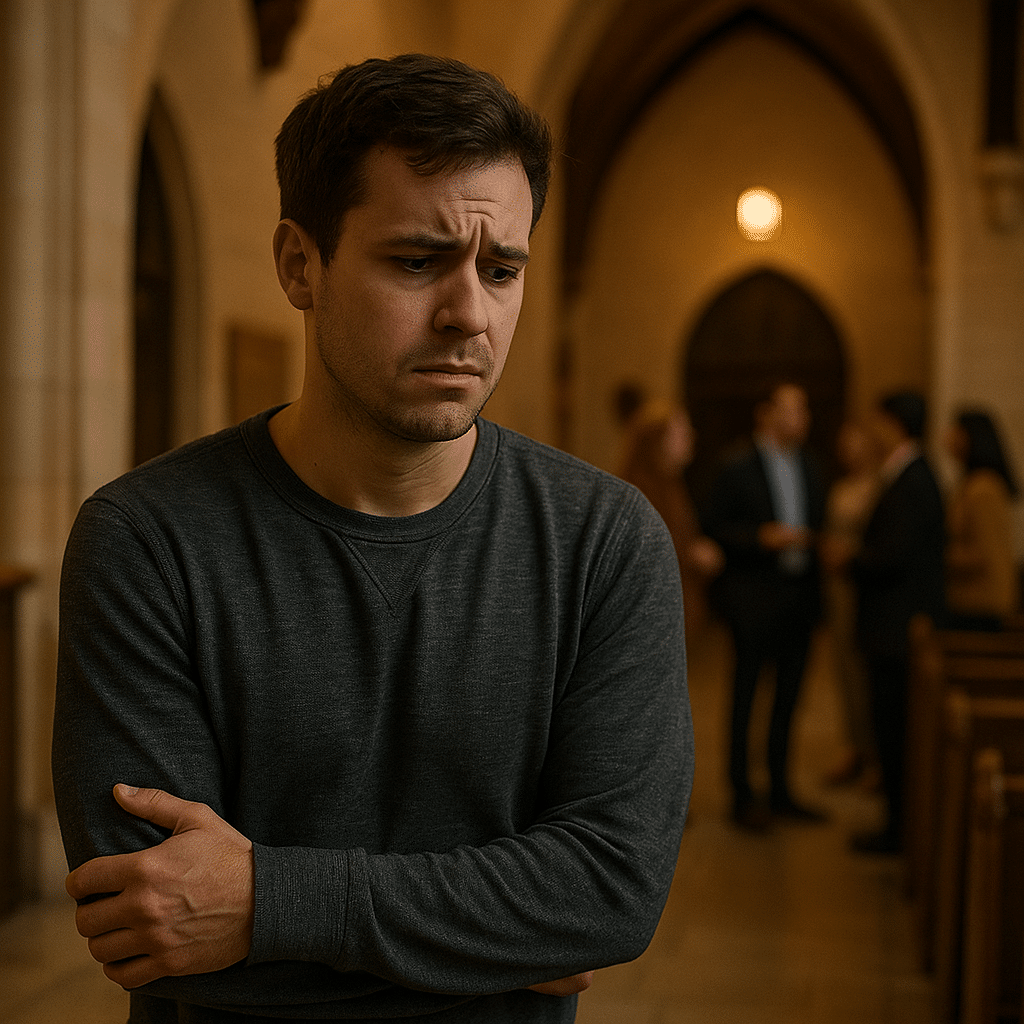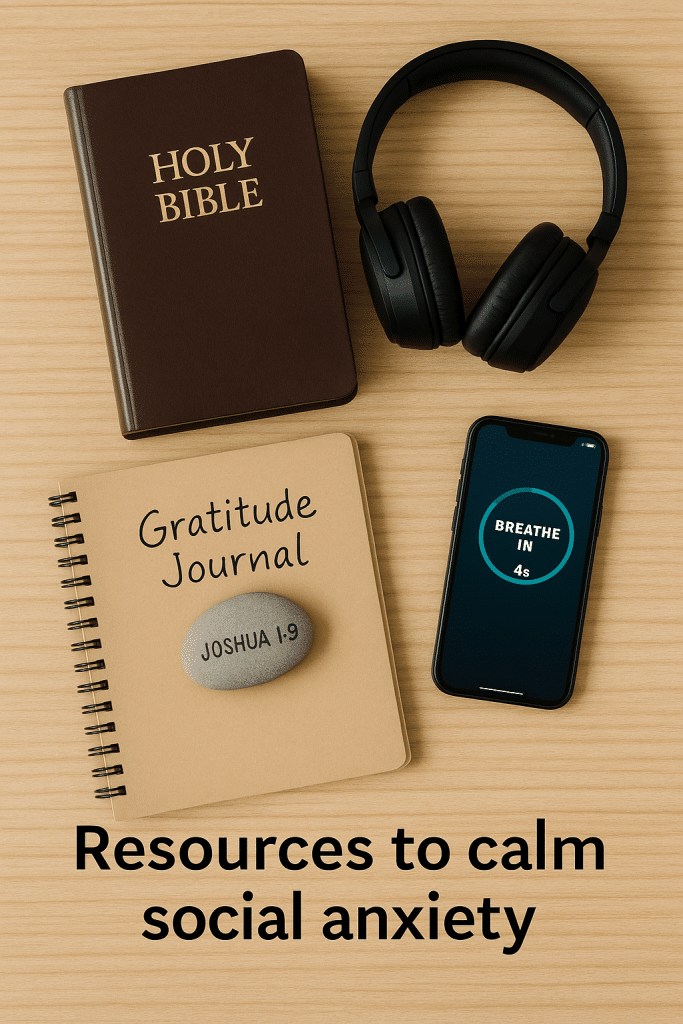Social Anxiety: Faith‑Based Causes, Solutions & Tools
Estimated reading time: 6 minutes
Social anxiety can feel like a giant wall between believers and the vibrant fellowship Jesus desires for His people. Because the church thrives on community, the condition hurts doubly: first by isolating the sufferer, then by silencing vital spiritual gifts. However, the good news is clear—healing is possible. In this article you will discover why social anxiety appears, how faith and science work together to solve it, and which next steps move you toward freedom. Read on, and visit our homepage for additional guides and stories of hope. Additionally, our newsletter delivers fresh insights each month.

Understanding the Roots of Social Anxiety
Researchers explain that social anxiety starts when the brain mislabels ordinary interaction as danger. The amygdala, which normally fires only when a real threat appears, ignites at the sight of a coworker’s raised eyebrow or the crackle of a microphone. Consequently, adrenaline pours through the bloodstream, cheeks flush, and thoughts scatter. Although this reaction feels spiritual, it is also chemical. Family studies reveal that first‑degree relatives share a heightened amygdala response, which suggests a genetic loading. Yet painful memories—such as classmates laughing during a speech—teach the nervous system to fear embarrassment.
Moreover, perfectionistic church cultures sometimes reinforce the lie that performance equals worth, thus multiplying vulnerability. Scripture agrees that fear can enslave; Proverbs 29:25 warns that the fear of man proves a snare. Yet the same verse proclaims safety for those who trust the Lord, hinting that biology does not write the final story. When believers see both the neural circuitry and the biblical diagnosis, shame starts to break. Instead of asking “What is wrong with my faith?” they can ask “How did my brain learn this pattern, and how can Christ retrain it?” Therefore, awareness builds compassion.
Neural and Spiritual Triggers
Furthermore, modern imaging shows that people who practise daily gratitude and prayer exhibit reduced amygdala activation after eight weeks. Therefore, every time you breathe deeply, quote Psalm 27:1, and step into conversation—even for thirty seconds—you lay fresh tracks of courage. Over months these tracks merge into a highway of peace. Clinicians call this process neuro‑integration, while theologians call it renewal. The labels differ, yet the outcome glorifies God: a mind increasingly governed by truth, not terror. Moreover, recent church‑based groups report similar neurological calm in attendees who share weekly testimonies.
Integrated Solutions for Social Anxiety: Faith and Clinical Care
Because social anxiety cripples relationships, effective treatment must restore both body and soul. Cognitive Behavioral Therapy (CBT) sits at the centre of modern care. During weekly sessions a counsellor helps clients detect distorted expectations, then build replacement statements anchored in reality. For example, the fearful thought “Everyone will stare if I stumble over a verse” becomes the truth “Most listeners love Scripture and will admire my effort.” Each corrected belief lowers physiological arousal. Beyond thought work, therapists assign progressive exposure tasks. A client might first read one line of a Psalm at home, next recite two verses in a prayer circle, then eventually lead the entire study. Clinical trials from Theravive show that 70 % of participants maintain gains a year after exposure work. Consequently, believers observe not only calmer minds but richer friendships. Therefore, participants stay engaged.
Nevertheless, therapy alone may not tame severe symptoms; therefore physicians often prescribe SSRIs. These medicines raise serotonin so nerve cells fire in balanced rhythms. While pills do not teach new thoughts, they create a calmer climate in which prayer thrives. Believers who use medication wisely report that they pray with more focus because their chests no longer pound. Furthermore, coordinated care models demonstrate even faster recovery. Meanwhile, regular worship attendance strengthens neural pathways of joy. To support your next step, read our cornerstone roadmap that outlines breathing rituals, grounding Scriptures, and weekly practice sheets.
Finally, remember that victory is an active partnership. God supplies presence, the therapist supplies skill, and you supply willingness. Because willingness arises from vision, take time to picture a future where you participate freely in worship nights and workplace discussions. That mental rehearsal primes dopamine pathways, making action more appealing. As Philippians 2:13 explains, God works in us both to will and to act. Likewise, vision boards taped to the fridge keep anticipation high. Consequently, the church sees bolder testimonies.

Practical Helps and Recommended Tools
Because healing accelerates with the right gear, the following items deserve a place in your toolkit. First, keep a slim gratitude journal beside your Bible and note three micro‑wins after every social interaction. Additionally, simple reminder cards on your dashboard prompt slow breathing before errands. Second, install a paced‑breath app; the vibration cue guides four‑second inhalations and six‑second exhalations, activating the parasympathetic system. Third, invest in noise‑cancelling headphones—lower ambient decibels, lower adrenaline. Fourth, explore an online directory that matches clients with licensed Christian therapists; tele‑therapy removes distance barriers and allows gradual exposure from home. According to PsychCentral, digital interventions boost continuity, which matters because consistency predicts success. Furthermore, colour‑coded tabs in the journal quicken review sessions. Consequently, community involvement multiplies courage through repetition.
Of course, tools include community resources as well. Therefore, bookmark your church events calendar and set reminders for low‑pressure gatherings like game nights. Moreover, carry a smooth stone engraved with Joshua 1:9. Touching it anchors you to truth during unexpected triggers. Small strategies, when repeated, produce large change.

Living Boldly Beyond Social Anxiety
Therefore, refuse to let social anxiety dictate Sunday attendance, workplace influence, or family joy. Jesus intercedes, clinicians coach, and tools support—together these allies form a cord of three strands. When fear flares, breathe slowly, recall truth, and act anyway. Every courageous moment teaches the brain a new safety score. Moreover, the Holy Spirit delights to empower every act of faith. Soon, social anxiety will no longer decide whether you worship, serve, or lead. Likewise, mentoring younger believers reinforces your own victory story. Because renewal is lifelong, schedule quarterly check‑ins with your counsellor or mentor to review progress and reset goals. Therefore, vibrant fellowship becomes normal.






